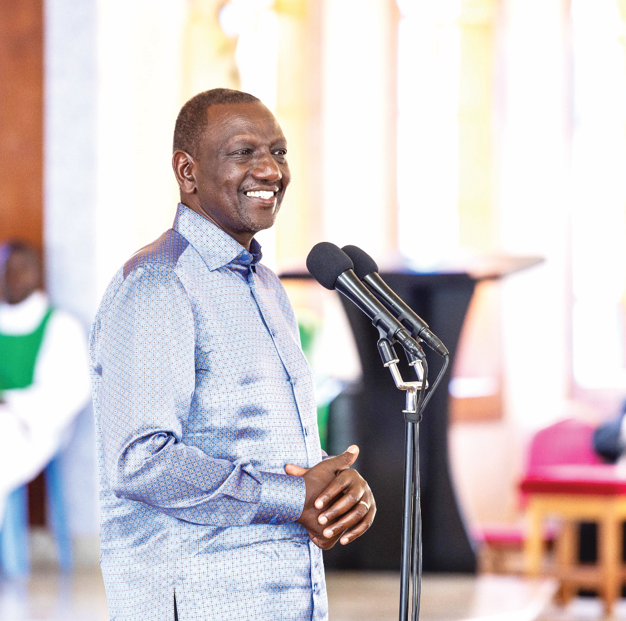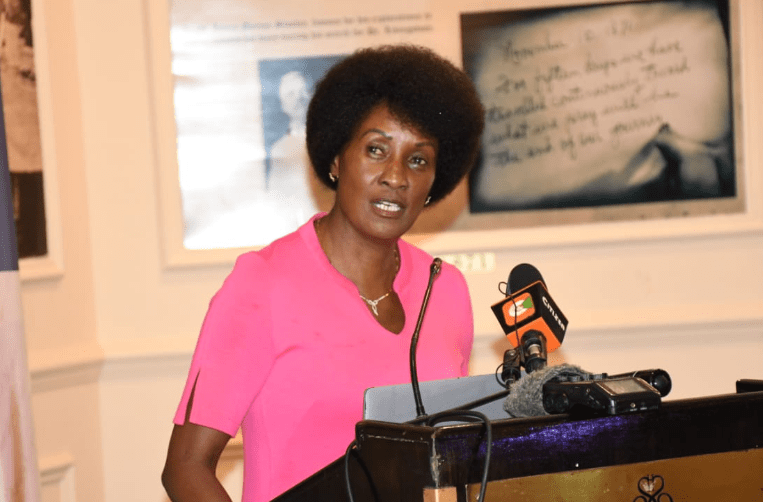Ruto call for court restraint on some cases worrying

President Ruto’s invitation to the Judiciary to “think about” restraining itself on matters before other arms of government is a threat to the rule of law and good governance.
Of the three arms of government, only the Judiciary is populated by professionals. The other two – executive and legislature – are occupied by politicians constantly pandering to the caprices of the electorate.
“As we restrain ourselves by not interfering on matters that are in the purview of other arms of government, there is [an] equally high responsibility on the part of the Judiciary to restrain itself when it comes to matters before other arms of government,” the President said at a Supreme Court event marking 12 years of its creation.
Coming within days of the court gifting the executive a favourable decision on the constitutionality of the 2023 Finance Act that the Kenya Kwanza government was forced to fall back after it abandoned the 2024 Finance Bill following protests against its punitive tax proposals, the President’s invitation does not portend well for a court that has increasingly shown a propensity to vacate its own decisions when it’s convenient to appease the executive.
In a contentious decision delivered on 29 October, the court overruled a Court of Appeal verdict that had declared the 2023 Finance Act unconstitutional. The apex court asserted that the law was constitutional because sufficient public participation had been conducted by the National Assembly.
But it’s the reasoning behind the decision that critics find too bitter a pill to swallow, inconsistent with established jurisprudence by superior courts, including the Supreme Court itself, the Court of Appeal and the High Court.
Chapter 2 of the Constitution establishes Kenya as a sovereign Republic, and goes further to provide that the Republic “shall be a multiparty democratic State founded on the national values and principles of governance articulated in Article 10”.
The national values and principles of governance include patriotism, national unity, sharing and devolution of power, the rule of law, democracy and participation of the people. Others are human dignity, equity, social justice, inclusiveness, equality, human rights, non-discrimination and protection of the marginalised; good governance, integrity, transparency and accountability; and sustainable development.
These values and principles bind State organs and officers, public officers and all persons when applying or interpreting the Constitution; enacting, applying or interpreting any law; or making or implementing public policy decisions.
Critics, therefore, disagree with the Supreme Court in its latest judgment when it seems to throw claimants under the bus by asserting that “in any event, these sections [of the Constitution] do not confer upon the applicants any justiciable rights that they can exercise.”
But these seem to have been the vibes the President was looking forward to ahead of the occasion. And when the same judges of the apex court provided him with the opportunity to ask for more, he seized it with the enthusiasm of a Zealot, keen to push for more “restraint” in order to get through some of his unpopular policies on health, housing and taxation that are still under contestation in courts.
Riding on the crest of this zeal, the President went on to regale the justices with the difficulties that, as a politician, he goes through trying to balance between being popular and doing the right thing, adding that when he sacrifices populism so as to do the right thing, “the courts decide to be popular and undermine my agenda”.
The President’s invitation is a poisoned chalice, a solicitation to courts to turn their backs on their mandate as conferred under the Constitution and adopt interpretations that appease the political class and policies that placate their bloated egos.
Heeding such advice will leave Kenyans on their own, their last bastion of hope for governance based on the rule of law captured by fascists.
— The writer is the Executive Director of the Kenya National Civil Society Centre; suba_churchill@yahoo.com











